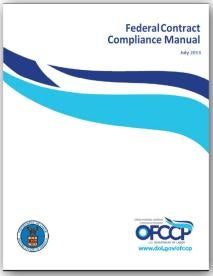On September 19, 2018, the OFCCP issued the most recent in a series of Directives designed to facilitate contractors’ efforts to self-audit and understand their compliance obligations and increase the transparency and accessibility of the enforcement efforts of OFFCP.
Through Directive 2018-09, OFCCP adopted an Ombud Service in the National Office to facilitate the resolution concerns raised by external stakeholders, including federal contractors and subcontractors, industry groups, law firms, and complainants. The Directive explains that “transparency is the foundation of a relationship of respect, dialogue and feedback with its stakeholders that will help the agency improve its effectiveness in both compliance assistance and evaluations.” OFCCP believes that increased transparency will improve operational efficiency and effectiveness and support contractors’ ability to conduct meaningful self-audits that proactively identify and address areas of concern.
To respond to concerns raised in a September 2016 report by General Accounting Office (GAO), OFCCP is adopting an independent mechanism through which external stakeholders can share their concerns with OFCCP about a particular open matter or provide general feedback or recommendations. OFCCP will hire an OFCCP Ombud who will report directly to the Deputy Director. The Ombud will be responsible for (1) listening to the concerns of external stakeholders; (2) promoting and facilitating the resolution of OFCCP matters at the regional and district level; and (3) working with OFCCP regional and district offices as a liaison to resolve issues after stakeholders have exhausted those channels.
If the Ombud program operates consistent with the Directive, it should provide contractors with an additional resource when they are facing challenging situations during the course of an audit. For instance, if a district office is demanding extensive records (perhaps for the third or fourth time) from a contractor during a compliance audit without an explanation (or what the contractor considers to be a reasonable one), contractors could reach out to the Ombud for assistance and support. The Directive emphasizes that the Ombud will not act as an advocate for either side or give advice or opinions. However, he or she may be able to help the contractor and the district or regional office reach a resolution of their dispute.
In these situations, it would be advisable for the contractor to work the issue through the “chain of command,” presenting (and documenting) its positions in a constructive and professional manner at each step in the chain. Then, it should be able to reach out to the Ombud with a written record, showing its efforts to reach a resolution and clearly identifying its position and arguments on the dispute. It would also be advisable to work with the Ombud on constructive, proactive issues, such as suggestions for improvement, so that he or she knows that the contractor supports OFCCP and its compliance efforts. By developing a good working relationship with the Ombud will put contractors in a better position when they feel they are not getting a fair shake in the audit or conciliation process.




 i
i

